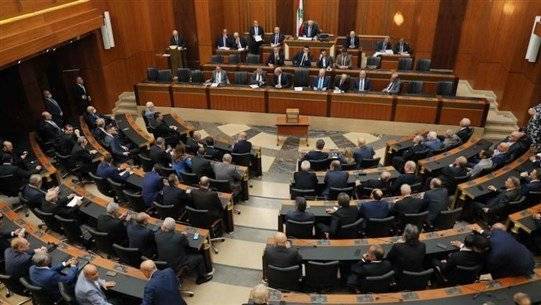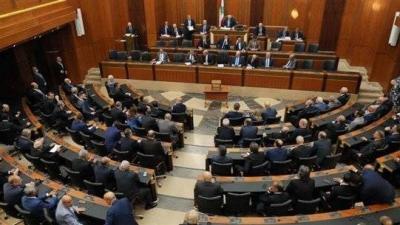Following the remarks attributed to House Speaker Nabih Berri regarding his intention to convene the legislature for a second session to elect a new President of the Republic before mid-October, and urging all parliamentary blocs and independent MPs to assume their responsibilities regarding the presidential election, "Nidaa Al-Watan" learned that Berri will set the date for this session for Thursday, October 13, prior to the commencement of the second ordinary session of the parliament starting the first Tuesday after the 15th of October, in accordance with Article 32 of the constitution as well as Article 44, which discusses the election of the two secretaries, and Article 19 of the internal regulations regarding the election of committees.
While Berri emphasizes to his visitors the importance and necessity of consensus as a way to rescue the presidency and avoid falling into a vacuum, he reiterates his adherence to the constitutional interpretation stating that the quorum for the presidential election session requires a two-thirds majority (i.e., the presence of 86 MPs) rather than a simple majority (i.e., the presence of 65 MPs), especially since this issue was long settled by consensus among prominent jurists and constitutional authorities, a principle also endorsed by the Maronite Christians.
Regardless of the voting dynamics that remain unclear among the blocs and particularly the "Change" MPs who confirm through their sources that nothing new or changed has occurred on this matter, as well as some independent MPs who will meet to discuss their position after a discussion among them about voting with the phrase "Lebanon," the firm position thus far is that MP Michel Moawad is the opposition candidate, and the white ballot will remain a consideration for other parties, unless there are unforeseeable surprises before the session, which is currently deemed unlikely.
In this context, MP Elias Jaradeh told "Nidaa Al-Watan": "We are still working according to our initiative, which carries a clear vision from the beginning that calls for consensus on electing a conciliatory president who establishes a dialogue project rather than a clash project, and there are many names that meet these criteria."
Conversely, one must note the Speaker's hope that skeptics will be convinced of the correctness of the principle requiring 86 MPs to be in their seats for any electoral round. This might have been overlooked by some of those who hold legal and constitutional opinions, who believe that the first session held on September 29 was indeed a first round, and consequently, the second session will be a continuation, albeit with a two-thirds quorum. The Speaker, an expert in constitutional texts and interpretations, had requested the reading of the minutes of the session when it lost its quorum, and he concluded and did not adjourn it so that it could continue; thus, we will move towards a new session with all its procedures regarding quorum and voting rounds as set forth by the constitutional texts, which we may notice from the official invitation that Berri will send to the MPs in the coming hours and days.
Moreover, the timing and date of the session chosen by Berri is not arbitrary; it is based on his interpretation that the council becomes an electoral body when it convenes to elect the president according to Article 75 of the constitution, which states: "The council convened to elect the President of the Republic is considered an electoral body and not a legislative body, and it must immediately proceed to elect the head of state without any discussion or other work." This separates its roles in oversight and legislation according to constitutional texts.
He will set the date for the second election session just before the start of the parliament's second ordinary session, in accordance with Articles 32 and 44 of the constitution. Article 32 states: "The council meets every year in two ordinary sessions; the first session begins on the Tuesday following the 15th of March and continues until the end of May, and the second session begins on the Tuesday following the 15th of October and is dedicated to discussing and voting on the budget before any other business, lasting until the end of the year."
Thus, will the separation between the sessions and their nature remain in place, or will we start from Article 32 so that the sessions are designated for discussing and voting on the budget, while disagreements continue to control the fate of the formation of the anticipated new government and consequently the birth of the general budget for the year 2023, which the caretaker government has started preparing, and thus resigning to a presidential vacuum after the end of October?




